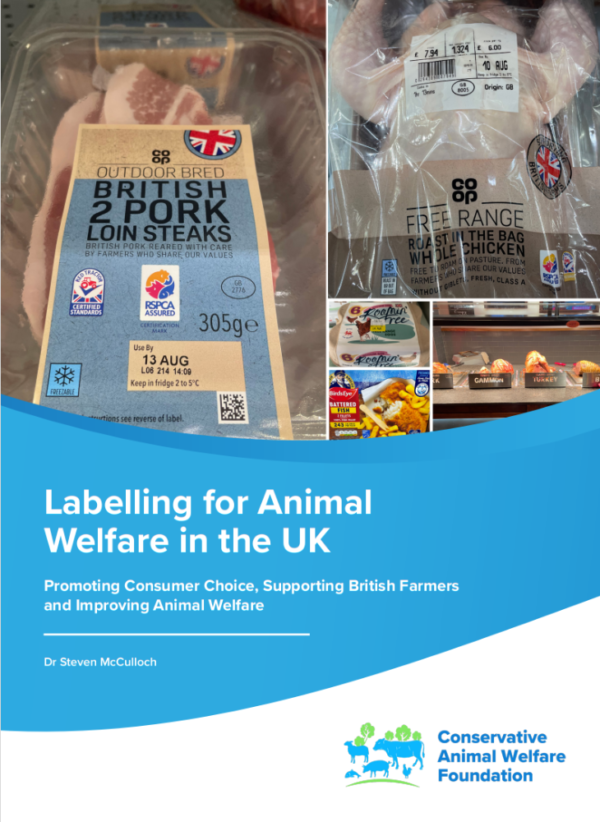
Labelling for Animal Welfare in the UK
Conservative Animal Welfare Foundation’s new report, ‘Labelling for Animal Welfare in the UK’, which makes the case for mandatory animal welfare labelling to be implemented in the UK.

Conservative Animal Welfare Foundation’s new report, ‘Labelling for Animal Welfare in the UK’, which makes the case for mandatory animal welfare labelling to be implemented in the UK.
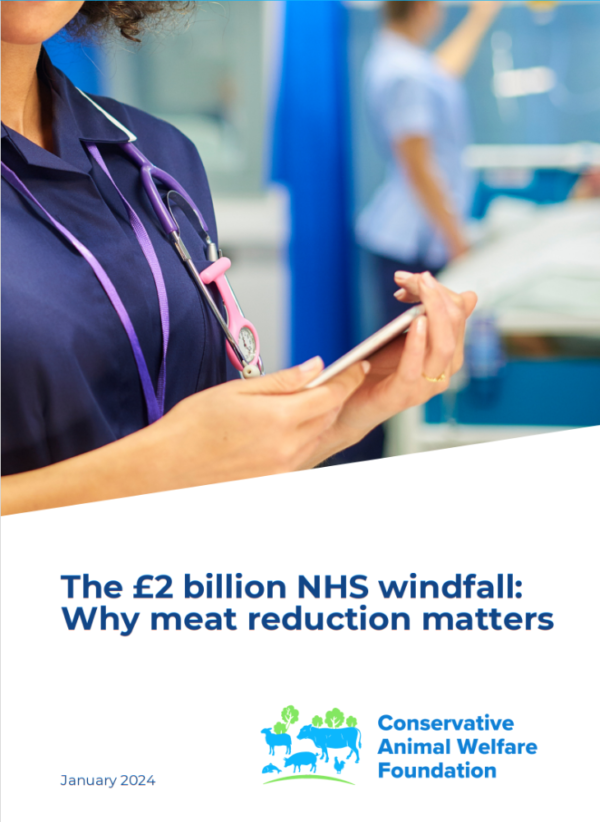
This report published by Conservative Animal Welfare Foundation on 27th January 2024 aims to educate both policymakers and the public alike on the personal and societal benefits to eating even a fraction less meat. In this way we hope individuals can be free to make informed choices about their diets.
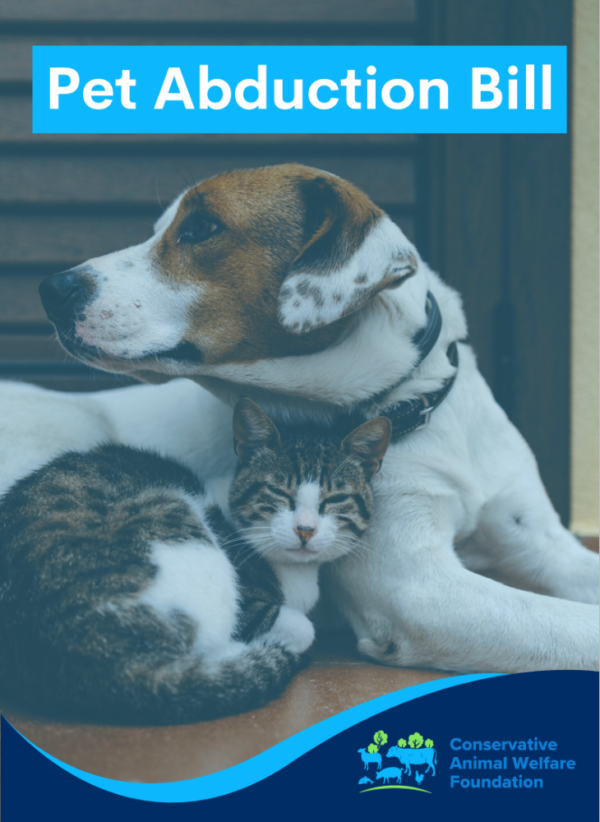
The Conservative Animal Welfare Foundation briefing on Patron Anna Firth MP’s Private Members Bill, the Pet Abduction Bill.
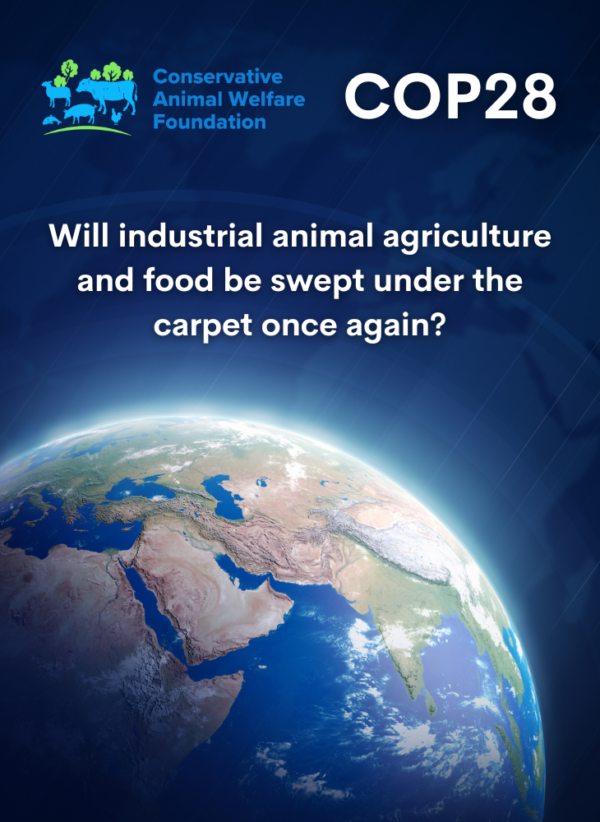
Conservative Animal Welfare Foundation blog ahead of the COP28 Summit, urging delegates in the UAE to commit to immediate global action towards creating sustainable, healthy food systems for the benefit of animals, people and the planet.
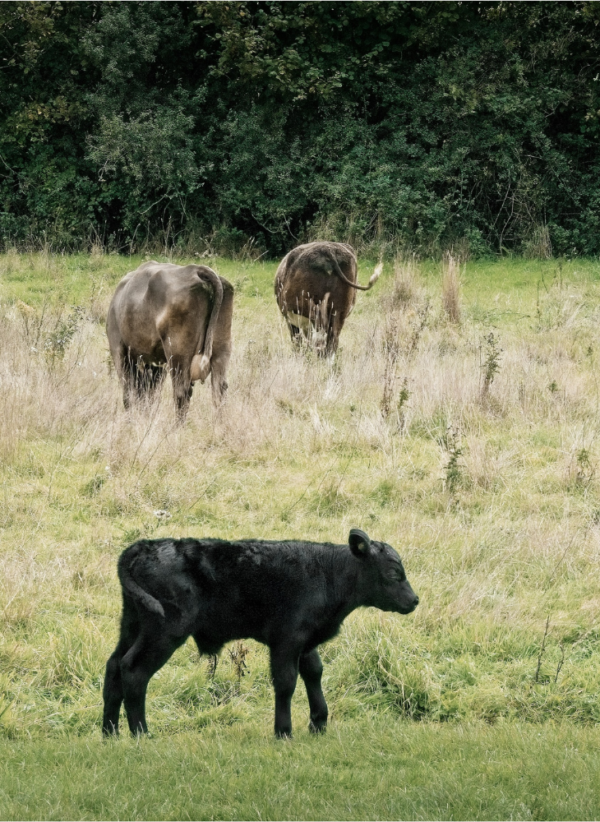
At the Conservative Animal Welfare Foundation, we believe strongly in our manifesto proposals. Our years of experience in this area and our professional expert networks help us shape our policy asks. We know that animals matter to voters (our recent polling showed that two thirds, 64%, would feel more positively about a political party if they included a strong commitment to animal protection), we now call on the Conservative Party to show that animals do really matter to them too by including our asks in their General Election Manifesto.
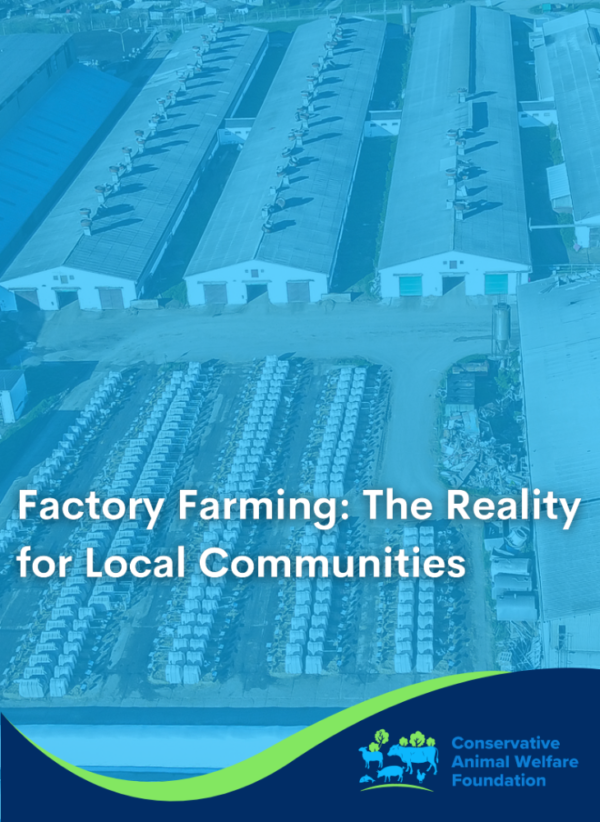
This resource by Conservative Animal Welfare Foundation is designed to educate policymakers, local councils, and the public at large about the dangers of factory farming and why they should oppose their developments.
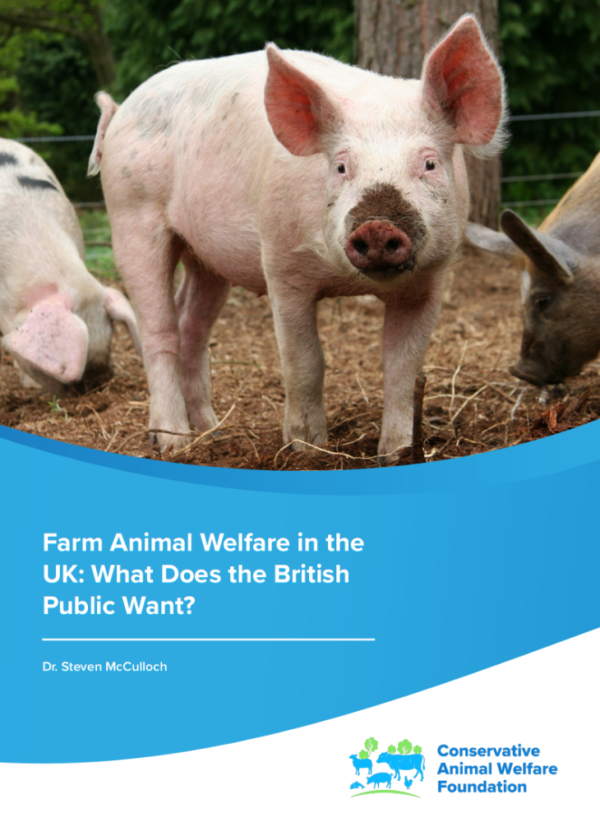
Conservative Animal Welfare Foundation report by Dr Steven McCulloch documenting the significant gap between what the British public demands as citizens and consumers, and the realities of what they receive via UK farming industry methods of production and practices.

The Conservative Animal Welfare Foundation 2024 Manifesto sets out its key policy recommendations for the Conservative Party to adopt in their 2024 General Election Manifesto. The Manifesto includes exclusive polling commissioned by Conservative Animal Welfare Foundation and carried out by Opinium in June 2023. The polling shows strong public support for political parties who legislate to enhance the lives of animals, and the extent to which the public values animal welfare as a consideration when casting their vote.
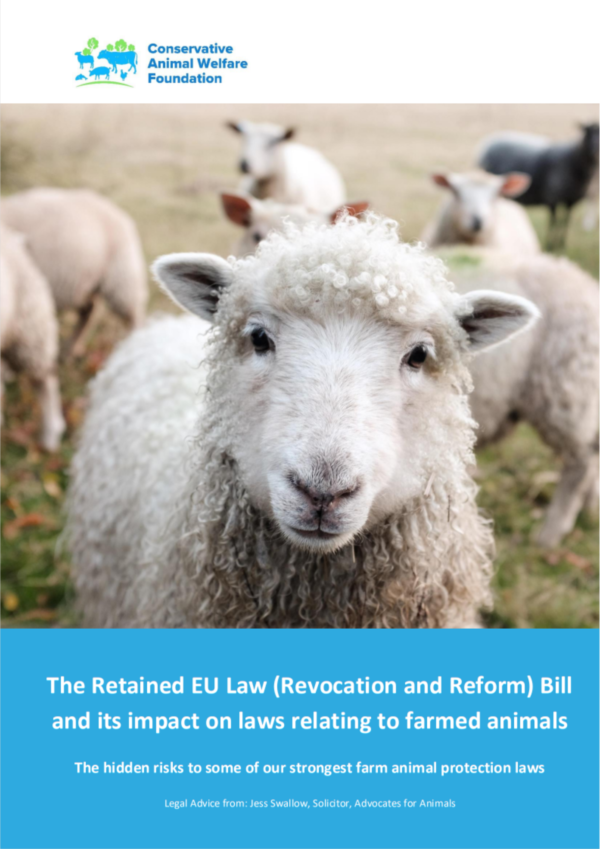
The Conservative Animal Welfare Foundation commissioned Advocates for Animals law firm
to consider the impact of the Retained EU Law (Revocation and Reform) Bill (“REUL Bill”) on
farmed animal welfare legislation.
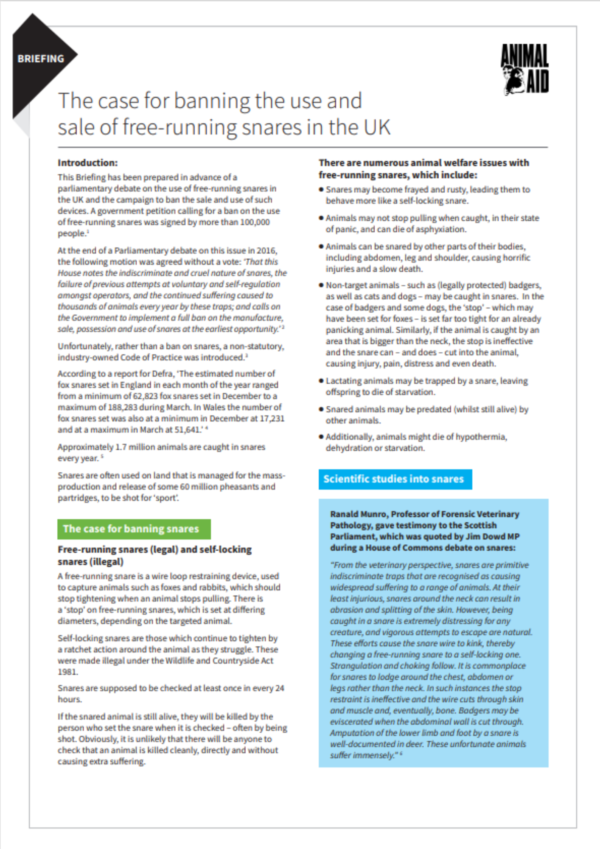
Ahead of the parliamentary debate on 9th January, we are publishing Animal Aid’s briefing document on ending the use of cruel snares in the UK.
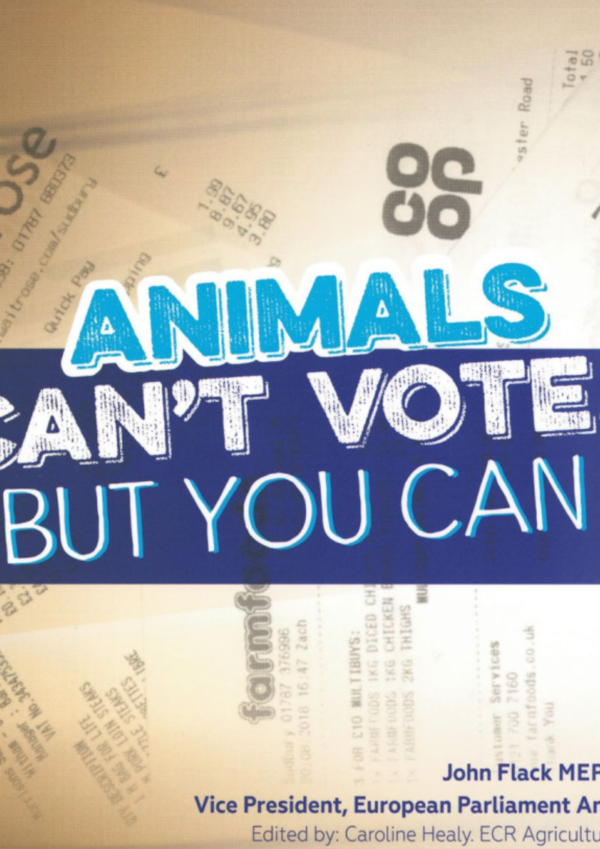
Book by former MEP, Vice President European Parliament Animal Welfare Intergroup, and Conservative Animal Welfare Foundation Patron John Flack.
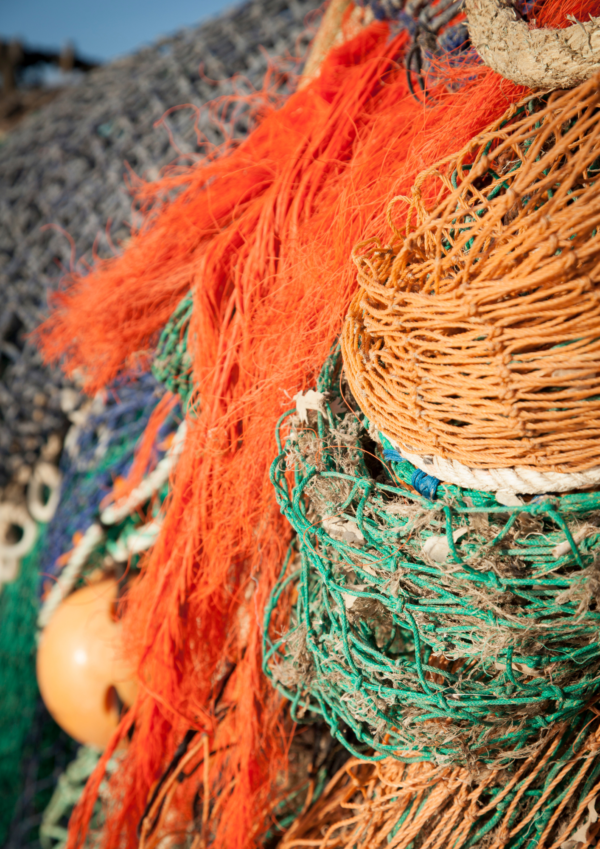
Conservative Animal Welfare Foundation Head of Research Dr Steven McCulloch has co-authored a paper with John Garratt on wild fish welfare in UK commercial sea fisheries, who has a professional background in the navy and in the civil service.
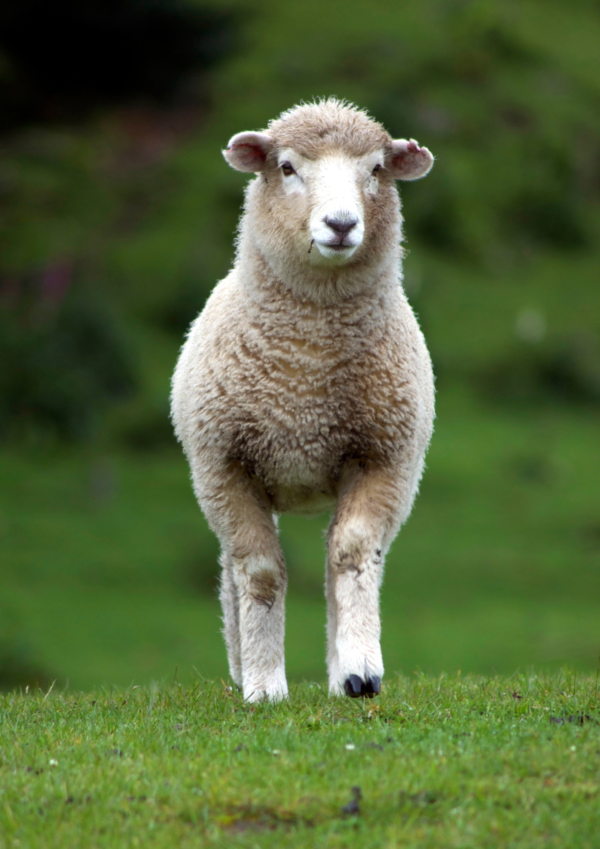
The Conservative Animal Welfare Foundation is an independent organisation which
seeks to advance farm animal welfare and the lives of animals in the UK and around the
world. Our small but impactful team is made up of leading experts in the field of animal
welfare, research, politics and public affairs
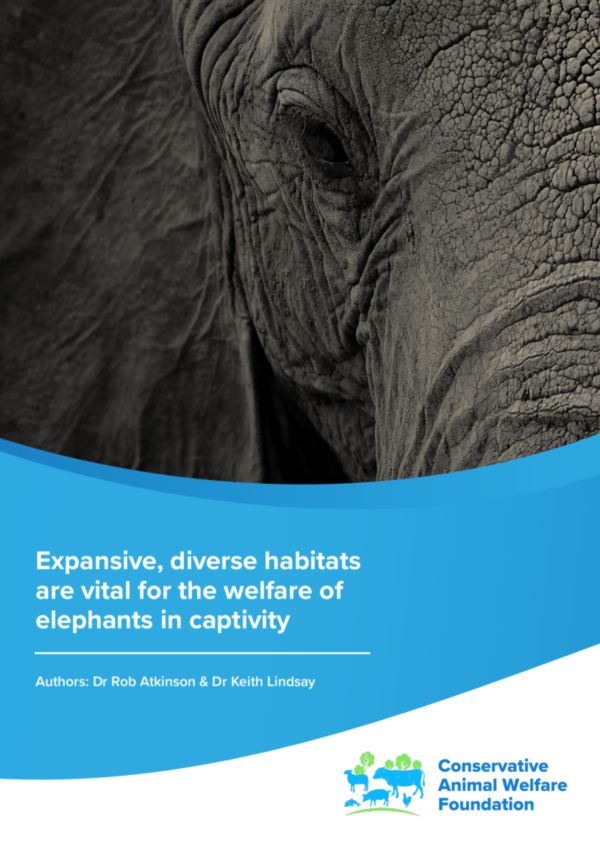
After two decades of scientific and government scrutiny, Defra is reviewing the future of elephant-keeping in the
UK. At this juncture, the government is urged to take decisive action.
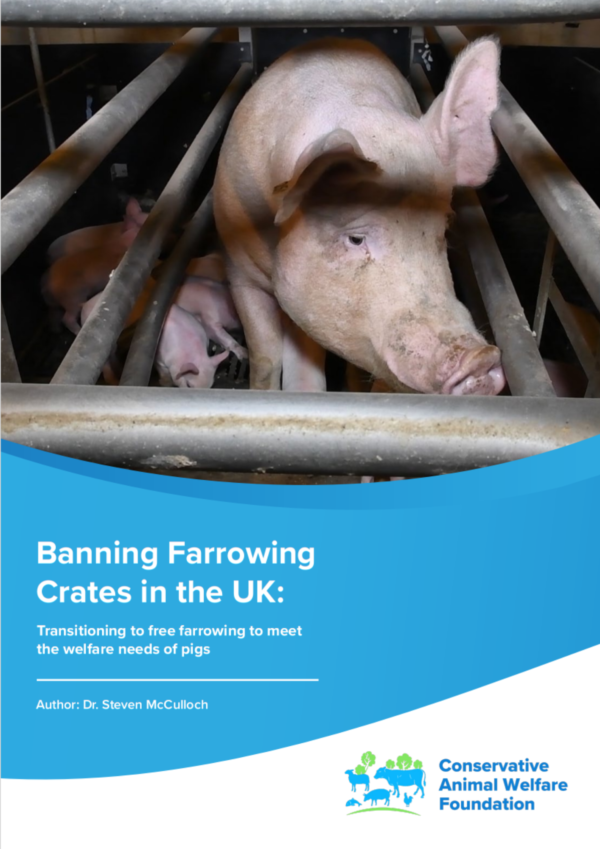
Farrowing crates cause the greatest degree of confinement of farmed animals of any system
in the UK and European Union. The crate measures approximately 198cm x 60cm x 60cm
with a footfall (area) of 1.23m².1 This means that the sow is able to stand up and lie down,
but is unable to turn around or move freely to explore her environment. In the UK, 60% of
breeding sows are kept in crates, meaning over 200,000 sows are confined in this way
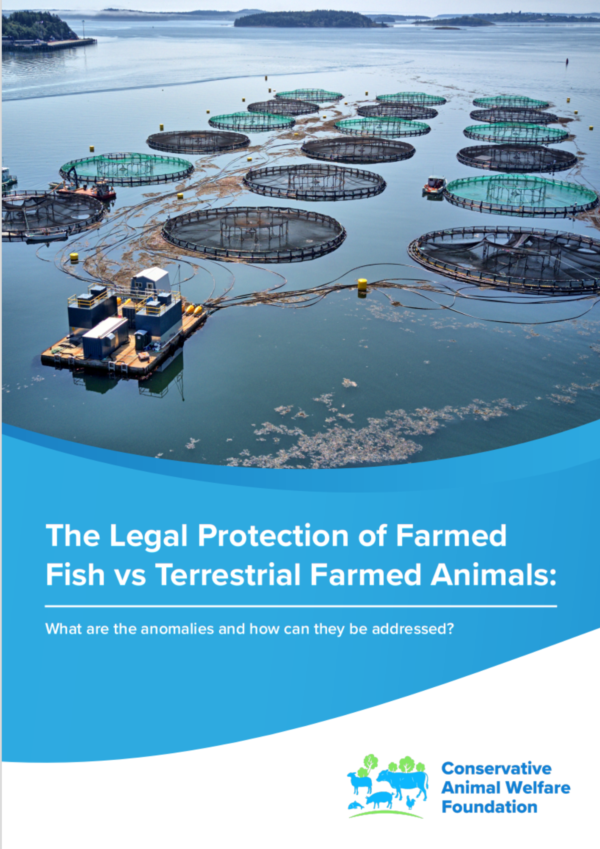
Conservative Animal Welfare Foundation Briefing Document: The Legal Protection of Farmed Fish vs Terrestrial Farmed Animals:
What are the anomalies and how can they be addressed?
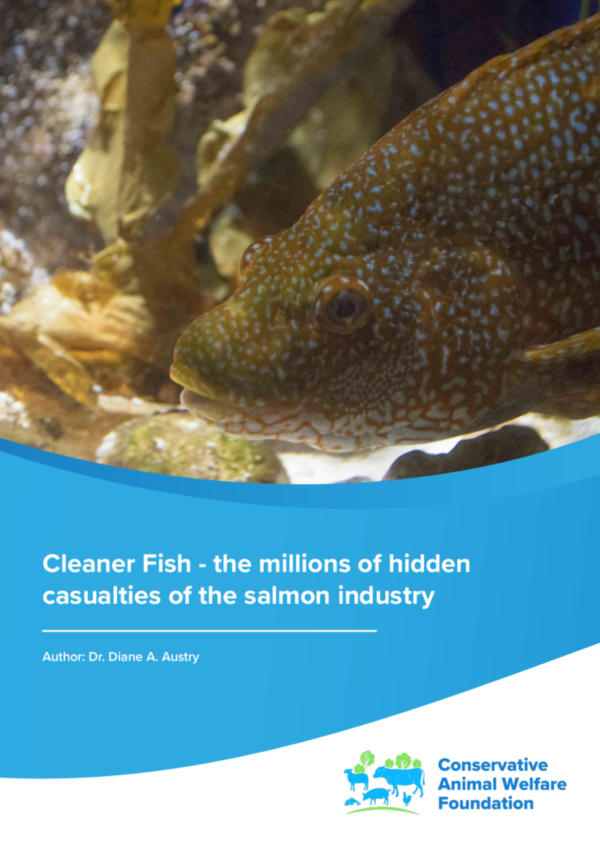
Lumpfish and wrasse species are remarkable animals with unique personalities and the ability for tool use. They even show some evidence of self-awareness. Relying on their
natural (yet, opportunistic) ‘cleaning’ behaviour, the aquaculture industry uses millions of them (about 15 million produced in Scotland in 2020) to eat sea lice from farmed salmon. The industry refers to them as ‘cleaner fish’, hiding their rights as individual sentient beings.
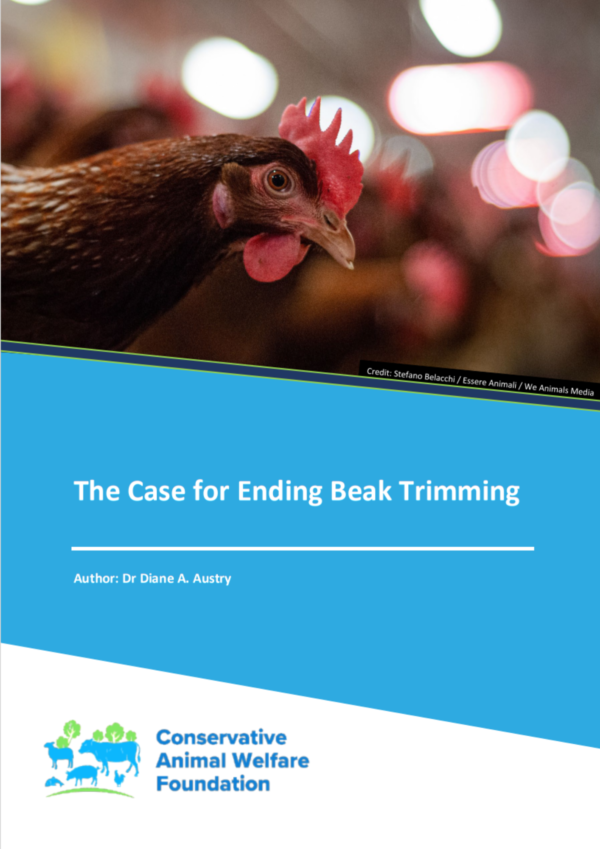
Feather pecking and cannibalism constitute the greatest economic and welfare pressures to poultry production today. The current response to this ongoing issue is beak trimming.
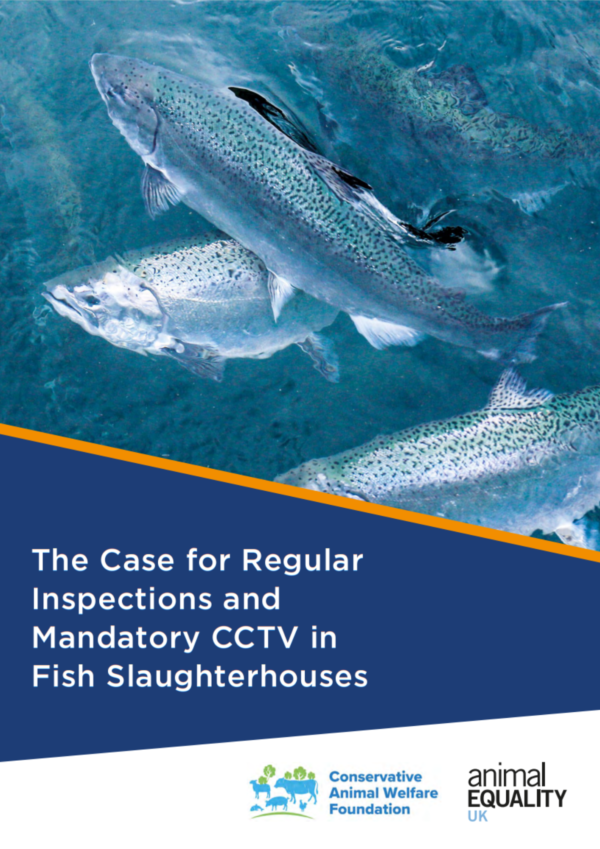
76% of people in the UK believe the welfare of fish should be safeguarded to the same extent as other farmed animals
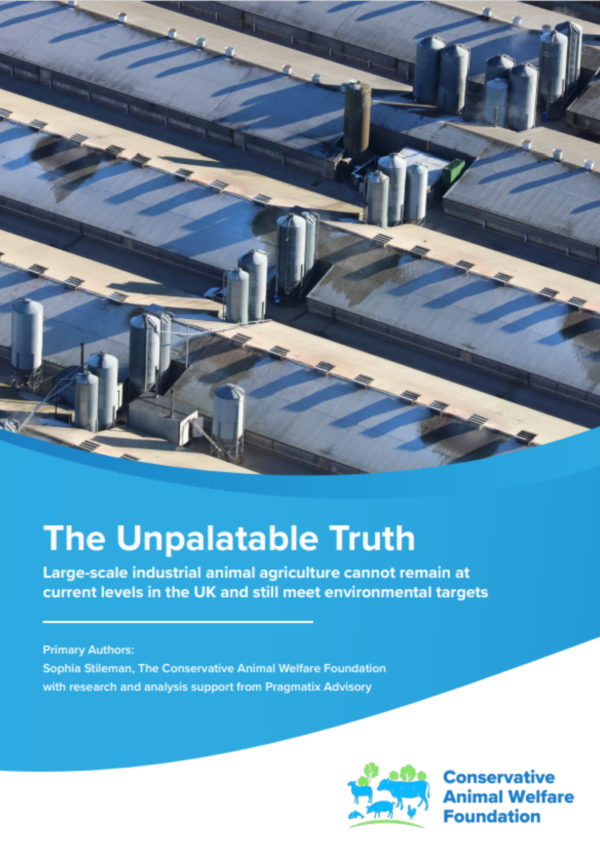
This report demonstrates how large-scale industrial animal agriculture cannot remain at the current levels in the UK and still meet environmental targets.
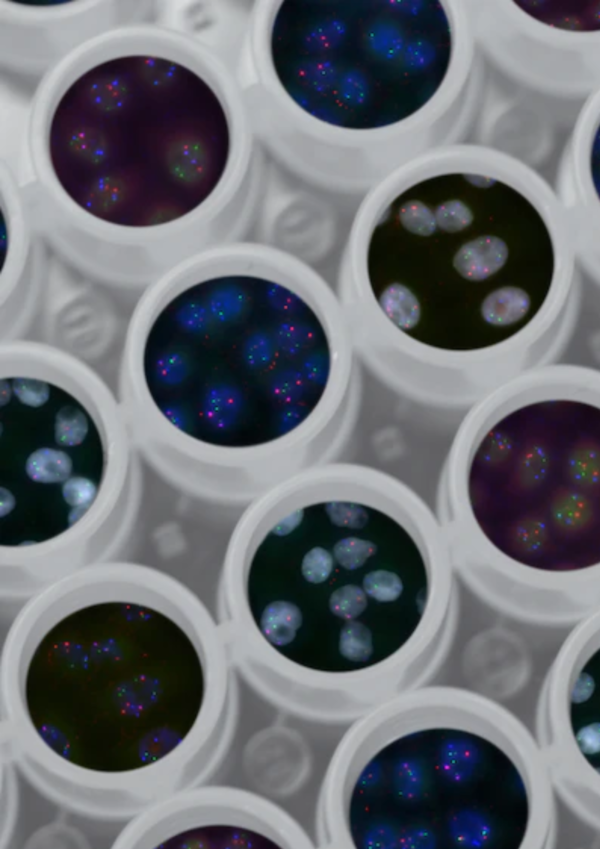
This brief by GeneWatch UK highlights many questions regarding the mechanistic underpinnings of DNA repair pathways in the genome editing process, and how this may impact the safety and efficacy of genome-edited organisms.
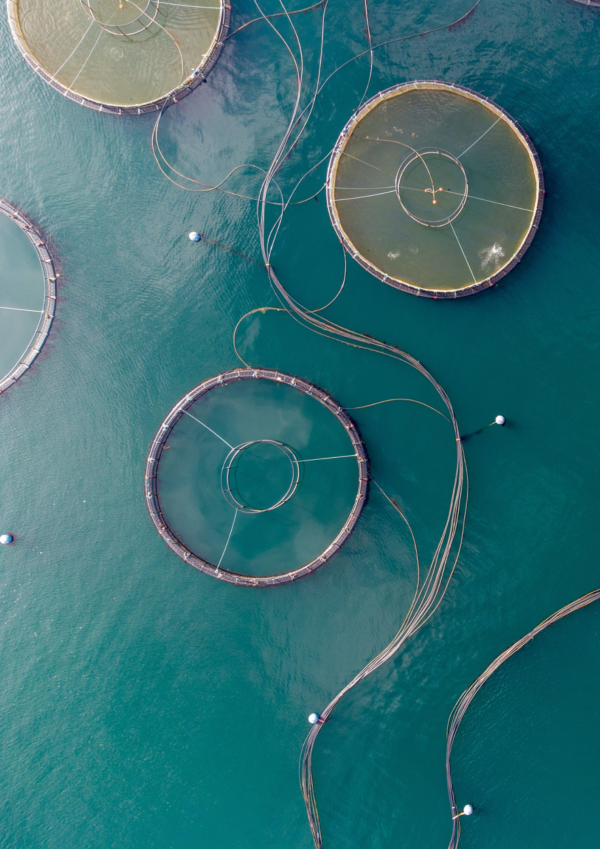
Fish farming is the fastest growing food sector in the world, and the UK faces a unique time-sensitive opportunity to shape that growth.
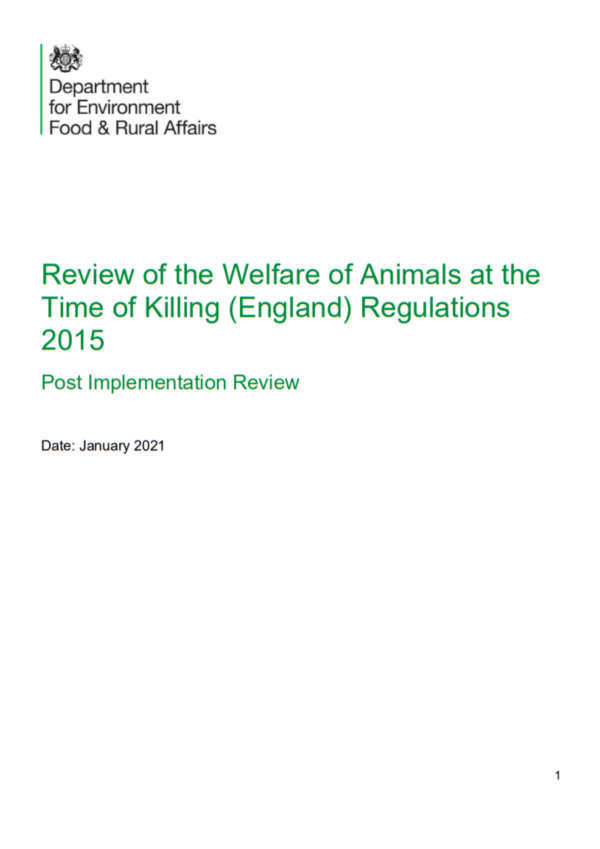
Department for Environment Food & Rural Affairs, post implementation review of regulations on the welfare of animals at the time of killing.
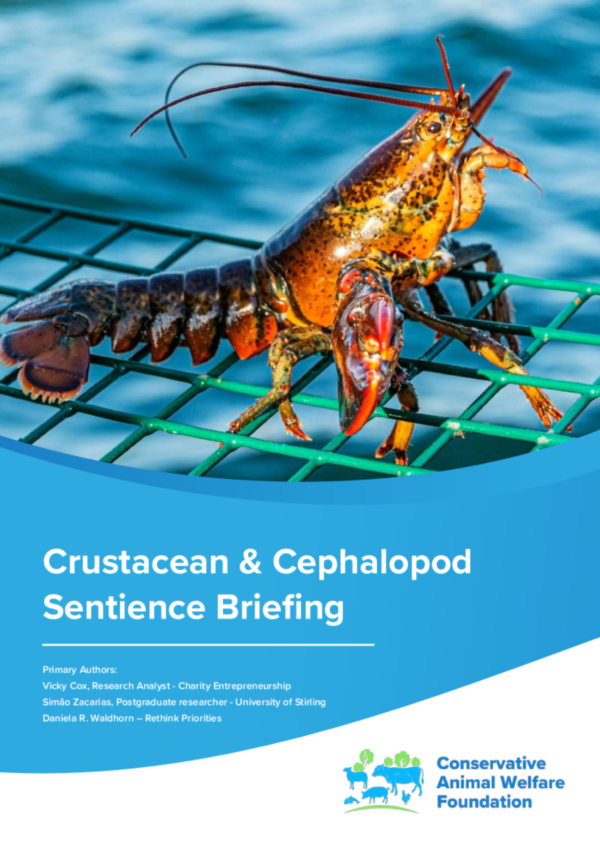
This report concludes that there is sufficiently strong evidence to conclude that both crustaceans and cephalopods are sentient.
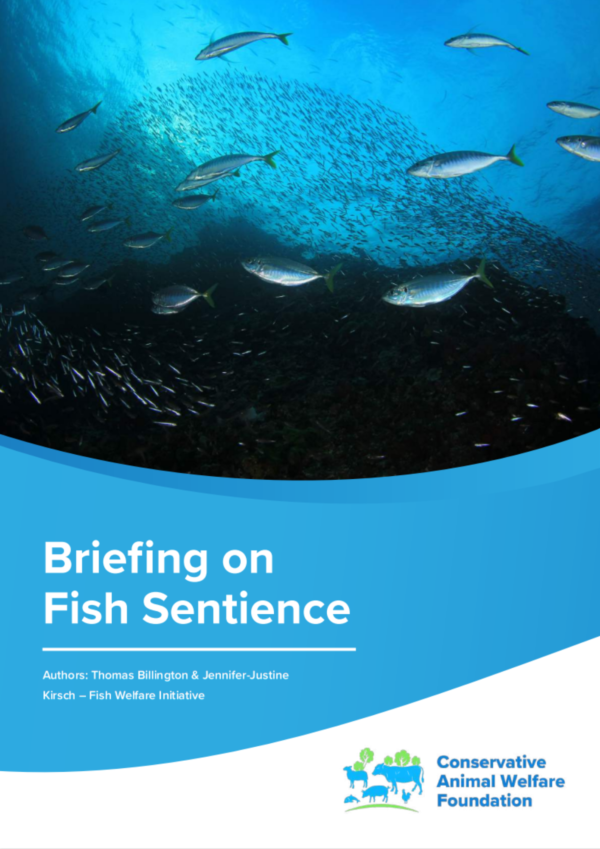
“There is as much evidence that fish feel pain and suffer as there is for birds and mammals”
– Victoria Braithwaite, Author of “Do Fish Feel Pain?”
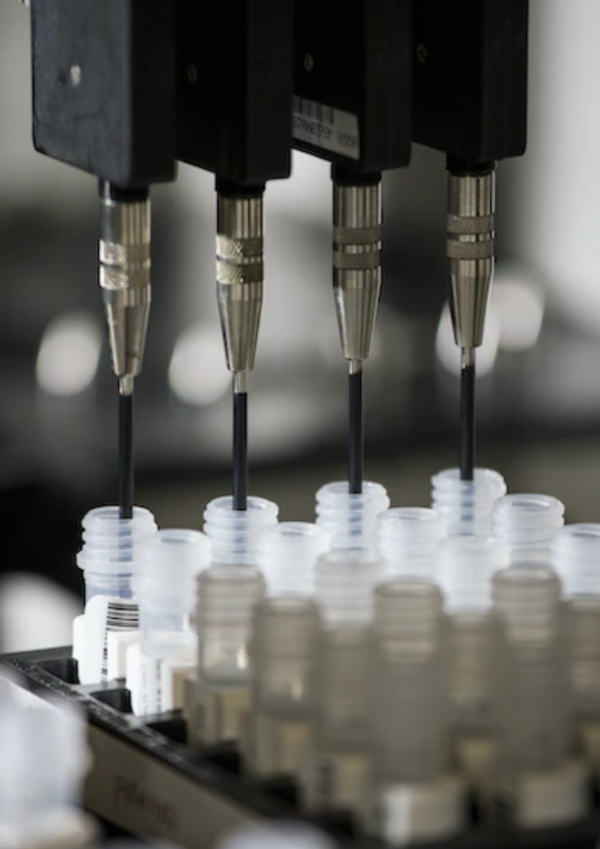
Conservative Animal Welfare Foundation’s submission to Defra on why we oppose GMOs.
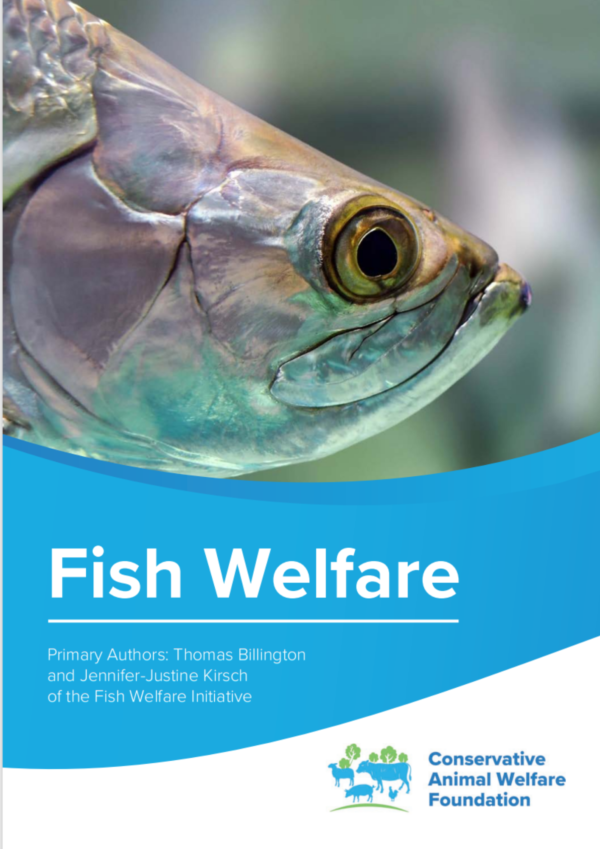
The UK was one of the first countries to enact animal welfare legislation, however, fish have typically been left out of this progress.
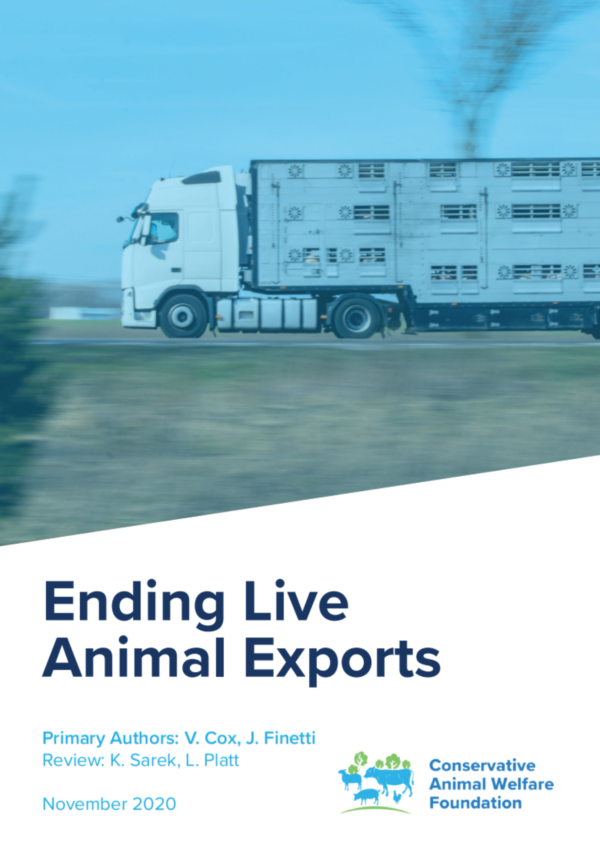
We recommend a complete ban on live animal exports. This would ensure they are slaughtered & raised according to UK’s welfare standards.
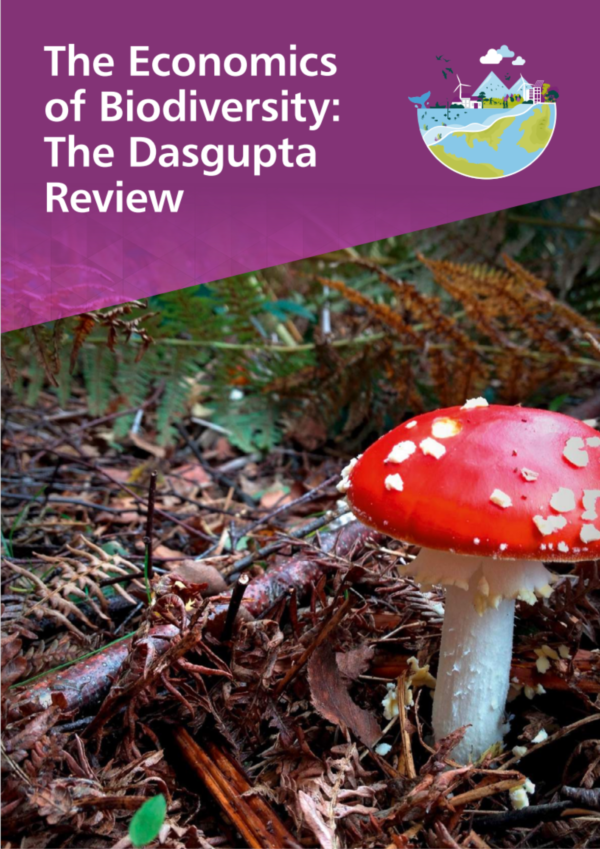
The review shows by bringing economics and ecology together, we can help save the natural world at what may be the last minute.
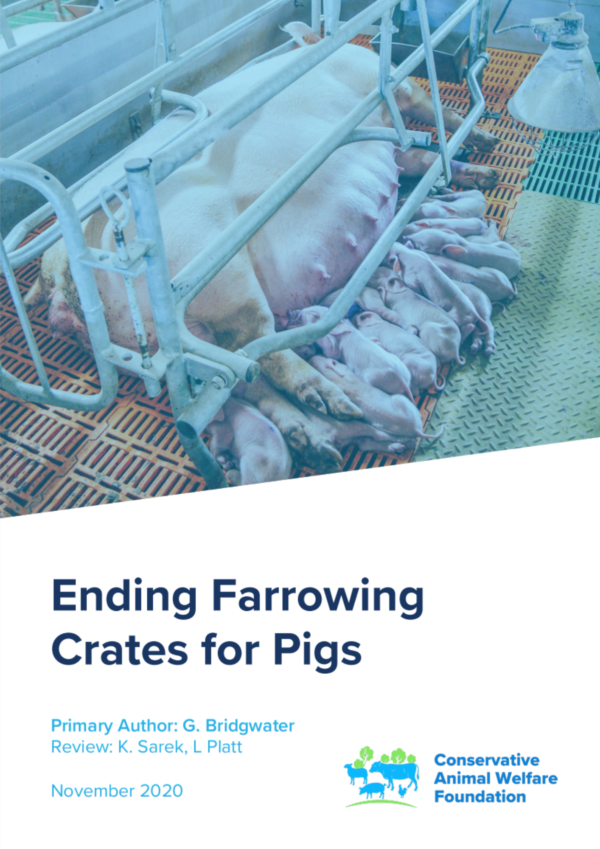
Use of and interest in alternative systems to farrowing crates has been growing over the last decade, which is explored in this report.
Join Our Mailing List
Keep up to date on our campaigns and the latest news by subscribing to our newsletter. You can unsubscribe at any time if you change your mind later.
Become a Supporter
Join our growing community and keep up to date on our campaigns.
Simply fill out our online form to sign up.
You can unsubscribe at any time if you change your mind later.
Registered Office: Bridge House, 11 Creek Road, East Molesey, Surrey, KT8 9BE
© Conservative Animal Welfare Foundation Ltd Company registration 09867991. Registered in England and Wales

This website uses cookies so that we can provide you with the best user experience possible. Cookie information is stored in your browser and performs functions such as recognising you when you return to our website and helping our team to understand which sections of the website you find most interesting and useful.
Strictly Necessary Cookie should be enabled at all times so that we can save your preferences for cookie settings.
If you disable this cookie, we will not be able to save your preferences. This means that every time you visit this website you will need to enable or disable cookies again.
This website uses Google Analytics to collect anonymous information such as the number of visitors to the site, and the most popular pages.
Keeping this cookie enabled helps us to improve our website.
Please enable Strictly Necessary Cookies first so that we can save your preferences!
This website uses Google Analytics to collect anonymous information such as the number of visitors to the site, and the most popular pages.
Keeping this cookie enabled helps us to improve our website and your user experience.
Please enable Strictly Necessary Cookies first so that we can save your preferences!
For more information on what we collect go to our Privacy Policy